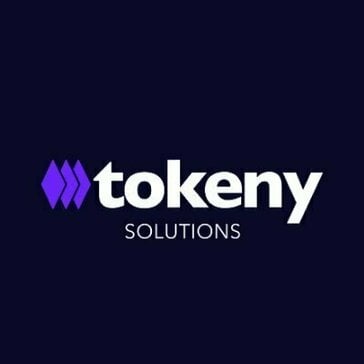Description

HollaEx

Lyra
Comprehensive Overview: HollaEx vs Lyra
Certainly! Here's a comprehensive overview of HollaEx and Lyra:
a) Primary Functions and Target Markets
HollaEx
HollaEx is an open-source cryptocurrency exchange software designed to help businesses and entrepreneurs launch their own digital asset exchanges. Its primary functions include:
- Exchange Platform Setup: Offering a plug-and-play solution for setting up an exchange with various customizable features.
- White-label Solutions: Allowing companies to brand and modify the exchange according to their preferences.
- Crypto Trading: Enabling buying, selling, and trading of a wide range of cryptocurrencies.
- Liquidity Management: Providing tools and services to manage and ensure liquidity on the platform.
Target Markets:
- Startups and entrepreneurs looking to establish a cryptocurrency exchange swiftly.
- Existing financial institutions aiming to expand into digital assets.
- Blockchain projects desiring to create a proprietary marketplace for their tokens.
Lyra
Lyra, on the other hand, is a decentralized options trading protocol built on the Ethereum Layer 2 network. Its primary functions include:
- Options Trading: Providing a decentralized platform for trading options on various crypto assets.
- Automated Market Making (AMM): Using liquidity pools and algorithms to facilitate options trading without intermediaries.
- Risk Management Tools: Offering tools for risk assessment and management for traders and liquidity providers.
Target Markets:
- DeFi enthusiasts interested in decentralized derivatives trading.
- Institutional investors interested in decentralized finance products.
- Advanced traders looking for options in the crypto market for hedging and speculation.
b) Market Share and User Base Comparison
Since HollaEx and Lyra cater to different segments of the crypto market, direct comparisons in market share can be nuanced:
-
HollaEx: Being an open-source solution, its market share can be more challenging to quantify precisely. It serves niche markets focused on white-label exchange solutions, and its user base primarily consists of businesses rather than end-users like traders. The prevalence of its usage is more implemented through the number of exchanges powered by HollaEx rather than direct trading volume.
-
Lyra: As a DeFi protocol, Lyra's market share is generally measured by Total Value Locked (TVL), user base (wallet addresses interacting with the protocol), and trading volume. While DeFi continues to grow, options trading within this sector is more specialized. Compared to leading decentralized exchanges and platforms, its market share is relatively smaller, focusing on the derivatives niche.
c) Key Differentiating Factors
-
Centralization vs. Decentralization:
- HollaEx operates primarily in a more centralized manner, allowing businesses to control their platforms using HollaEx's tools, thus offering more control over user experience and compliance.
- Lyra, as a DeFi protocol, emphasizes decentralization, offering peer-to-peer trading, reducing the need for intermediaries.
-
Business Model:
- HollaEx serves as a Business-to-Business (B2B) solution, focusing on enabling other businesses to create exchanges.
- Lyra serves end-users directly in a Business-to-Consumer (B2C) model via its decentralized platform for trading options.
-
Customization vs. Standardization:
- HollaEx provides extensive customization opportunities for businesses to tailor their exchanges fully according to branding and operational needs.
- Lyra relies on standardized protocols and smart contracts inherent in decentralized options trading, prioritizing security and efficiency over customization.
-
Implementation Complexity:
- HollaEx requires technical and operational input to set up an exchange, making it more suited for businesses with technical teams or resources.
- Lyra is accessible to individual traders who have familiarity with DeFi platforms, offering a more straightforward entry into trading options without needing in-depth setup.
These differences highlight how these products cater to various aspects of the cryptocurrency ecosystem, each leveraging distinct advantages to serve their target demographics effectively.
Contact Info

Year founded :
Not Available
Not Available
Not Available
Not Available
Not Available

Year founded :
2018
Not Available
Not Available
Spain
Not Available
Feature Similarity Breakdown: HollaEx, Lyra
When comparing HollaEx and Lyra, both platforms are designed to facilitate cryptocurrency exchanges, but they may have different approaches to certain features and user interfaces. Here’s an analysis based on typical features of such platforms and their user experience:
a) Core Features in Common:
-
Trading Capabilities:
- Both platforms likely support a range of trading pairs and a variety of cryptocurrencies. They may offer different types of orders such as market, limit, and possibly stop-limit orders.
-
Wallets:
- Integrated digital wallets for storing various cryptocurrencies are a common feature, enabling users to deposit, withdraw, and hold their assets securely.
-
Security Measures:
- Expect standard security protocols such as two-factor authentication (2FA), SSL encryption, and cold storage solutions.
-
API Access:
- APIs for developers to connect third-party applications or algorithms to the trading platform for programmatic trading.
-
User Management:
- Account management features including user registration, KYC (Know Your Customer) processes, and user profile management.
-
Fee Structures:
- Both platforms will have clearly defined fee structures, including maker and taker fees that can vary based on the trading volume.
b) User Interface Comparison:
-
Design Aesthetics:
- HollaEx and Lyra might offer user-friendly interfaces, but the aesthetic and layout could differ. HollaEx may focus on a more minimalistic and straightforward design, while Lyra might offer a more graphically rich interface.
-
Functionality & Accessibility:
- Both platforms will prioritize ease of use, with intuitive navigation for users of all experience levels. However, the specific layout of dashboards, charts, and trading forms may vary, influencing the user’s learning curve and engagement.
-
Mobile Experience:
- The comparison should include how responsive or user-friendly the mobile versions are if available.
c) Unique Features:
-
HollaEx:
- HollaEx might offer more extensive white-label solutions, which allow businesses to launch their own branded exchange platforms quickly. This could include advanced customization features for branding and functionality to suit business needs.
-
Lyra:
- Lyra may distinguish itself with unique blockchain technology support or integration with specific fintech services that are not commonly found on other platforms. It could also offer specialized analytics tools or user education resources that set it apart.
Conclusion:
While both HollaEx and Lyra are built to provide robust cryptocurrency exchange functionalities, their differences lie in interface design choices, unique offerings like white-label capabilities or specialized tools, and possibly the depth of integrations with other blockchain technologies or services. Interested users or businesses should consider these factors along with specific needs for customization, trading features, and overall user experience when choosing between them.
Features

Not Available

Not Available
Best Fit Use Cases: HollaEx, Lyra
HollaEx and Lyra serve different purposes and can be best utilized by various business types and scenarios within the cryptocurrency and blockchain space. Let's delve into where each platform shines:
HollaEx
a) Best Fit Use Cases for HollaEx:
-
Exchange Startups: HollaEx is ideal for startups looking to enter the cryptocurrency exchange market with limited resources. Its open-source technology offers a cost-effective and time-efficient solution to launch crypto trading platforms.
-
Existing Financial Institutions: Banks and financial service providers aiming to expand their service offerings to include cryptocurrency trading can use HollaEx to quickly integrate a digital asset exchange.
-
Community Projects: Cryptocurrency and blockchain communities that are focused on niche markets or specific projects can set up their own exchanges to facilitate trading within their ecosystems.
-
Custom Token Ventures: Projects that have created their own tokens or cryptocurrencies can use HollaEx to establish a dedicated platform for token users to trade and manage their digital assets.
d) Industry Verticals and Company Sizes for HollaEx:
- Industry Verticals: Fintech, banking, digital finance, blockchain communities.
- Company Sizes: Suitable for both small startups entering the crypto trading space and medium-sized enterprises looking to diversify or upgrade their service offerings.
Lyra
b) Preferred Scenarios for Lyra:
-
Crypto Lending Platforms: Businesses looking to develop or improve decentralized finance (DeFi) platforms, especially those focusing on lending and borrowing services, will benefit from using Lyra.
-
Investment and Asset Management Firms: Firms that manage crypto assets and want to integrate advanced options trading strategies can leverage Lyra’s infrastructure.
-
Trading Platforms Seeking Options Markets: Existing trading platforms that want to add layered financial products such as options trading to their offerings can find Lyra to be a valuable addition.
-
Market Makers: Organizations that operate as market makers in the crypto space can use Lyra to improve liquidity provisioning and explore new avenues for derivatives trading.
d) Industry Verticals and Company Sizes for Lyra:
- Industry Verticals: DeFi, asset management, trading platforms, financial derivatives.
- Company Sizes: Primarily caters to medium to large companies in fintech and finance sectors, focusing on those who wish to adopt or expand their DeFi capabilities or derivatives trading platforms.
Both HollaEx and Lyra offer tailored solutions for specific aspects of the cryptocurrency ecosystem. HollaEx empowers businesses to create accessible trading environments, while Lyra provides advanced options trading platforms that appeal more to sophisticated financial operations. Each can significantly aid companies in tapping into the ever-expanding digital finance space.
Pricing

Pricing Not Available

Pricing Not Available
Metrics History
Metrics History
Comparing undefined across companies
Conclusion & Final Verdict: HollaEx vs Lyra
To provide a conclusion and final verdict for HollaEx vs. Lyra, we need to analyze a few key aspects: product features, pricing, user experience, and target audience. Here's a breakdown:
Best Overall Value
a) Considering all factors, determining which product offers the best overall value depends on specific user needs and contexts. If the priority is a customizable and scalable exchange platform, HollaEx might provide the best value due to its open-source nature and extensive features for cryptocurrency trading and exchange management. On the other hand, if users are looking for a solution that offers simplified integration with a focus on security and reliability within blockchain and identity management, Lyra might be more suitable.
Pros and Cons of Each Product
b) HollaEx
- Pros:
- Open-source: Allows for extensive customization and adaptability.
- Scalability: Suitable for both small and large exchanges.
- Community Support: A robust community for problem-solving and improvements.
- Cons:
- Complex Setup: May require technical expertise to fully implement and manage.
- Maintenance: Continuous updates and monitoring might be needed to ensure smooth operation.
Lyra
- Pros:
- Security: Focuses on secure blockchain solutions, ideal for businesses concerned with data integrity and privacy.
- Ease of Use: User-friendly interface and straightforward integration processes.
- Reliability: Known for stable performance in identity verification systems.
- Cons:
- Limited Customization: Less flexible compared to open-source alternatives.
- Niche Applications: Might not offer the broad cryptocurrency exchange functionalities needed by some users.
Recommendations
c) Specific Recommendations for Users
- If your business aims to launch a custom cryptocurrency exchange with flexibility and scalability as top priorities, HollaEx is probably the more fitting choice. Make sure you have the necessary technical support or expertise to manage an open-source platform effectively.
- For users prioritizing security, especially in identity verification and related blockchain applications, and looking for a simplified, reliable solution, Lyra would be the recommended product.
- Evaluate the size and scope of your project. If quick deployment and ease of use is essential and the application isn't necessarily exchange-centric, opt for Lyra. However, if you envision future growth and need tailored solutions, consider HollaEx.
Ultimately, the best choice seemingly hinges on your technical capability, project demands, and focus on either exchange functionalities or security and identity solutions.
Add to compare
Add similar companies




